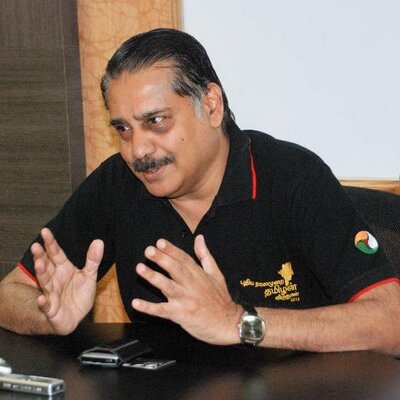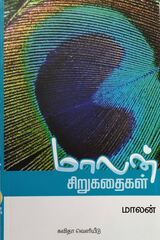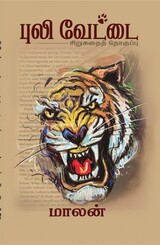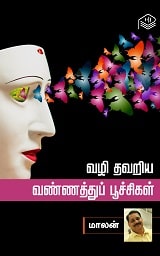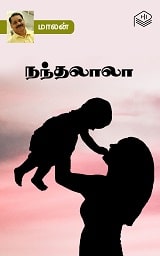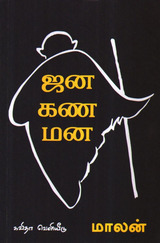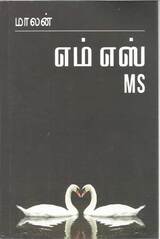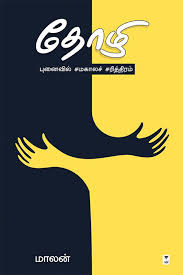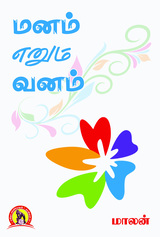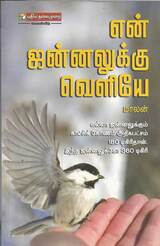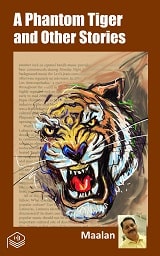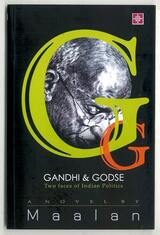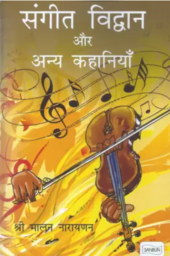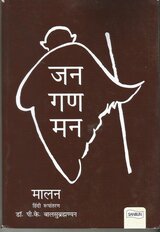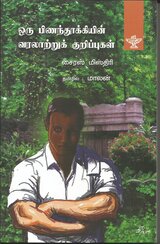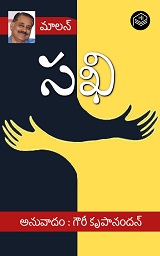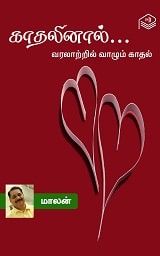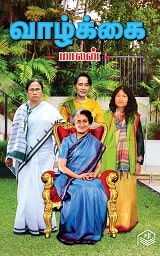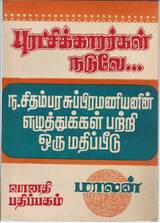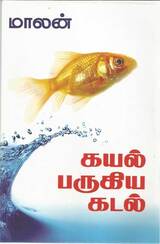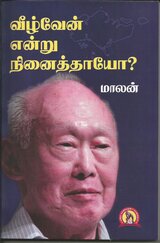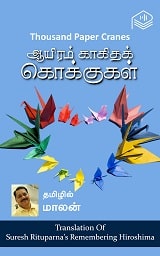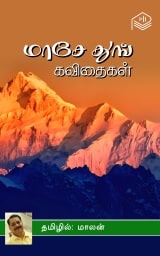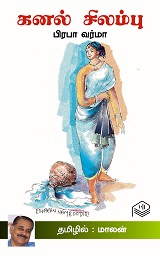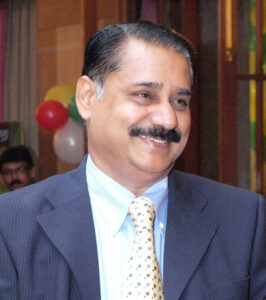Speech made for Kalki Biography Project 0n June 12 2021
A few of my friends raised their eyebrows in surprise when they heard that I will be giving a talk recalling Kalki’s journalistic career under a caption quill in a storm. One of them said, Ok I understand that you are trying to symbolize pen as a quill but why storm? Kalki was a popular editor, a celebrated writer, a veritable humorist, a laudable lyricist and a trusted lieutenant to legendary Rajaji. I think he was blessed with an understanding wife and lovable children who made his a peaceful home. Where is the storm?
I told him, “ You are right. I was trying quill as a metaphor for their ‘writing instrument’. Though they were not writing with the discarded feather, they were writing with something akin to it. V.Saminatha Sarma, who initiated Kalki into journalism when he came to report for his first job at Navasakthi gives a vivid picture of that instrument. “Sarma pulled out from his pocket a small neem twig like the one that was used to brush the teeth those days and tied a nib at its end. Sharma explained to Kalki, “ In this office, we have to craft our own tool to write. That too at low cost. You can buy these nibs two for quarter ana (approximately 6 paise ). Neem twig is of course free and plenty. A lot of people walk in and out of our office, so be vigilant to keep your twig pen safe” said Sharma.
“Interesting! But..” said my friend glancing at the variety of pens in the penholder at my desk where slim, stout, slender, short, ballpoint pens, gel pens, and fountain pens were jostling with each other. “ But buddy! I asked you about the storm!” reminded me.
“Yes, I remember. You had been reading Kalki weekly since childhood. Do you know when and how it was born? “I asked him.
He shook his head.
Kalki magazine was born in the midst of a storm that was passing not just through India, but through the whole world. World War II two broke in September 1939 and British India was involved in the war nose deep. All the resources were diverted to feed the huge army and there were shortages everywhere. Fearing bombing trenches were dug and bunkers were built in Chennai. Newsprint prices soared. Printing machines became expensive.
In those days letters from editor columns were called ‘Ubayakusalobari’, a Sanskrit term used to mean ‘I am fine and how are you. In the inaugural issue of Kalki, Kalki wrote a ubayakusalobari . It is a dialogue with, whom else, Vinayakar, who would become the mascot of Kalki magazine. It goes like this:
“Do you know a terrific war is on the west and it is moving near to you?” asked the Vinayakar
“Yes, Indeed!”
“Do you know that paper has become scarce because of war? It is becoming hard to find a small piece of paper to fold camphor?
“ I am very much aware of it. Paper price has gone up by fourfold. Printing machines have become expensive. Printing ink has become expensive.”
“ Having known all these things why do you start a journal now?”
[ One may wonder why Kalki chose Vinayakar as its mascot when there are pantheons of Gods? The mascot was more humane than divine. The First subscriber for the journal was one Mr Vinayakam Pillai from Chidambaram. Kalki was the only editor in the long history of Tamil newspapers to make a mascot to honour a reader. Artist Sama added his bit. He made an illustration of Vinayaka walking through the busy streets of Egmore reading Kalki in hand. And it became the mascot forever]
Besides the external hardships caused by war, he had a couple of personal issues at hand. Kalki was an asthmatic. In a letter dated 19.3.1941 to his wife from prison makes a passing reference to his health. He says that he is able to manage his cough ( maybe wheezing) with medication.
Though he was able to manage his physical health, I presume that his mind would have been in turbulence, as two of his pillars of strength all through his life, were dissuading him to give up the idea of launching a new magazine. Yes, Rajaji and TKC were not in favour of Kalki starting a new magazine then..
In a letter to his family members, Rajaji wrote on 3 May 1941: “ To me, Kalki launching a magazine doesn’t seem to be a good idea. He will be losing money. I would suggest him to try his hand on some major work (rather than spending his energies in a new venture) Let us think about it later”
Kalki’s other best friend T.K. Chidambranatha Mudaliyar also suggested trying for a job instead of launching a magazine.
And Kalki had another challenge before him. He is poised to take on the giant –Ananda Vikatan- which he built brick by brick for close to ten years.
But the journalist in Kalki was yearning for freedom to express himself. The circumstances that caused his exit from Vikatan, an institution he built with love and zeal might have nudged him to for something of his own.
Kalki has to quit for the editorials he wrote in Vikatan, though it has been said that he left to take part in Individual Satyagraha heeding a call from Gandhi. When Kalki entered his cabin on 6th November 1940, an office memo from Mr.S.S.Vasan, “the boss” was waiting at his desk. “I learn Government is watching all journals keenly. Hence don’t publish any matter that would invite action against or even a warning for our magazine”
Kalki had not relented and continued with his salvo against the British government that was waging a bloody war. At the fag end of the year 1940, Kalki wrote an editorial “Pollatha Narbathu “ (cruel forty). The very next day – one the new year eve- Kalki had a brief meeting with Vasan to inform that he would be courting arrest as he would be participating in the satyagraha. Vasan was annoyed at the decision and asked him to resign.
It is ironic that Kalki who was asked to leave for his editorial was once hired by Vasan to write editorials for Vikatan when he was a freelance writer. As far as I could recollect, in the history of Tamil journalism, no freelancer was entrusted with the responsibility of writing editorials except Kalki . Editorials are the voice of the paper and many editors including me considered it as their prerogative to handle it themselves. Kalki was the first and maybe the only freelancer to get the privilege. He may also be the one and only writer who ensured his remuneration even before his piece got published, by sending it by VPP!
Vasan bought Ananda Vikatan for Rs.200, from Vaidyanatha Iyer, to promote his mail-order business. He was looking for a medium wherein he can publish his catalogues. But catalogues can hardly sell themselves and need to be spiced up with fiction, humour and of course an editorial. Vasan was looking for a hand and landed on Kalki. But by then Kalki has committed to his mentor, Rajaji, to assist him in bringing out Vimosanam, a journal to propagate against liquor, a mission close to Rajaji’s heart. Even before Kalki joining Vikatan as its de facto editor Kalki was writing not just features but its editorials too. Kalki remained de facto editor for close to ten years, till his exit.
With his wit and versatility, Kalki transformed Vikatan from a brochure to a magazine. He devised, developed and nurtured various formats for feature writing and political discourse. Comical characters like Vikatanar, Sriman Podhujanam, Arasiyal Nirubar (sketched like a monkey with a long tail) used to chat –rather than discuss- current affairs with the editor. Besides creating a craving for short stories among his readers Kalki provided a treat of travelogues, biographies, commentaries on classical literature
Kalki assumed dozen pseudo names to write reviews on performing arts. Readers were able to ‘see’ the concerts as he was using a show-don’t tell- technique to describe vividly.
கச்சேரி ஆரம்பிப்பதற்கு முன்னால் பார்த்தால் மனுஷ்யர் வைதிகக் குடுமியுடன், கதர்ச் சட்டை போட்டுக் கொண்டு பரமசாதுவாய்க் காணப்படுகிறார். கச்சேரி ஆரம்பித்து விட்டாலோ, அட! அப்பா! என்ன மாறுதல். அந்த ஸ்வரங்கள்தான் அவரிடம் என்ன பாடுபடுகின்றன. “நில்லு அங்கேயே!” என்று இரண்டு கைகளாலும் தடுத்து நிறுத்துகிறார், ஒரு சமயம் “வந்துடு இங்கே!” என்று இருகைகளாலும் அணைத்துப் பிடித்துத் தலையோடு தலை முட்டவிடுகிறார், இன்னொரு சமயம். மற்றொரு சமயம் பேயறைவது போல ஒரே அறையாய் அறைகிறார். அப்புறம் ஸ்வரங்களை உரலில் போட்டு உலக்கை கொண்டு அவல் இடிப்பது போல இடிக்கிறார். பின்னர் வில்லில் நாணேற்றி காதளவு இழுத்து வாங்கிப் பாணப் பிரயோகம் செய்கிறார்.பிறகு கழுத்தைப் பிடித்து நெட்டுகிறார். கோபம் மிதமிஞ்சிப் போய்விட்டாலோ,”இதோ வேருடன் கல்லி எறிந்து விடுகிறேன் பார்!” என்று இரண்டு கையையும் கீழே கொடுத்து வேரைப் பறிக்கிறார். நல்ல வேளையாக மேடையில் உட்கார்ந்திருந்தாரோ, கானமந்திரத்தின் தரை பிழைத்ததோ! தரையில் மட்டும் உட்கார்ந்திருந்தால், நிச்சயமாகப் பெரிய குழி தோண்டியிருப்பார்”
Kalki’s film reviews were a tongue-in-cheek kind of criticism. Reviewing the film Bhakta Nandanar he wrote: “If you ask me who have rendered flawless, outstanding performance in this talkie, I would say 1.the coconut tree, 2 the Buffalo, 3.the lamb. (“மொத்தத்தில் இந்த டாக்கியில் குறையென்பதே இல்லாமல் நடித்திருப்பவர்கள் யாரென்று கேட்டால்1.தென்னைமரம் 2.எருமை மாடு 3. ஆட்டுக் குட்டி என்றுதான் சொல்ல வேண்டும்“)
As one would expect, Kalki’s reviews evoked strong reactions and rebuttals and he received both bouquets and brickbats. Later Thiaga Bhoomi, a film he authored was damned with spite and grudge. During his lifetime Kalki weathered many storms of controversies prompted by stalwarts like E.Krishnaiyer, (Music), Va Raa (literature) K.V.Ramachandran (Drama) and many in politics.
How and from where did Kalki derive strength to endure these storms? Was it from the closeness he had with those who had power and glory? Was it from his faith in God? Was it from the praise showered on him? It is not very difficult to find the answer. He had a strong conviction for what he was writing. In other words, he wrote what he believed in. That might have given the moral strength to him.
Perhaps this is what contemporary writers have to learn from Kalki, as they shoulder almost the same responsibilities that Kalki had. Editor Kalki declared that country’s interest is the prime responsibility. He pronounced that thrice in his first editorial in the inaugural issue of Kalki magazine.
Almost all present-day editors will agree with Kalki that country’s well being is paramount. Hardly there will be any disagreement. But what they perceive as India’s good do vary from person to person. For some it is economic growth; for few others, it could be communal harmony; and for some, it may federalism; for a few others, it could be a strong leader who thinks out of the box. In Kalki’s days, though disagreement on the approaches prevailed, there was a unitary goal, freedom from British rule. Today we have a spectrum of ideas before us and divergence is the order of the day. Journalists of Kalki’s era took pride being a patriot. Today it has become a cuss word. ‘Progressive’, ‘Liberal’ are the preferred tags today.
Kalki was a popular editor but he dared to differ from popular opinion. He toed the line of his mentor, Rajaji, who had often taken the political stand that was not popular always. Present-day editors are reluctant to against the perceptions of their target audience for the fear of losing them. Today journals have become products and ceased to be instruments that mediate messages.
Writer Kalki seemed to have believed that he has a responsibility to entertain his reader and was not just tickling or amusing him. He opted for a facile style discarding the preachy approach of his predecessors. Be it his early short stories like Sardhaiyin Thanthiram or his later magnum opus like Sivakamiyin Sabhadam he adopted a narrative that was both entertaining and enlightening. Few of his contemporaries branded him as a popular writer, as one playing to the gallery and not as a creator who is expressing his own self. This is absolutely a wrong notion born out of malice. Kalki demonstrated that popular fiction need not be pulp fiction.
Today’s writer has great challenges than Kalki had. He has a choice of a variety of genres before him. Non-linear prose, post-modern approaches, magical realism, metafiction, are in vogue. A lot is being written but is hardly read. The space for fiction has shrunk in mainstream magazines. Readers are indifferent to writers. Cliques and mutual admiration societies are the order of the day in little magazines. And finally, writers seem to have no responsibilities either for their work or for their readers.
If media has become an ‘industry’ writing has become like our democracy. With the tool kits for writing and self-publishing are available with a click of the mouse everyone has become a writer. Despite zillions of writers around us, I am yet to come across a Kalki yet.
We are blessed with million stars but with only one moon.

